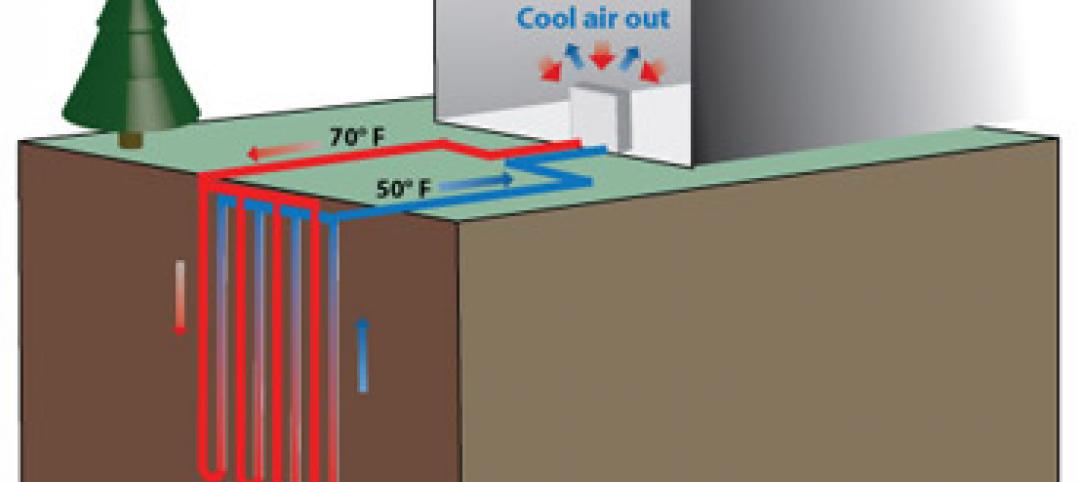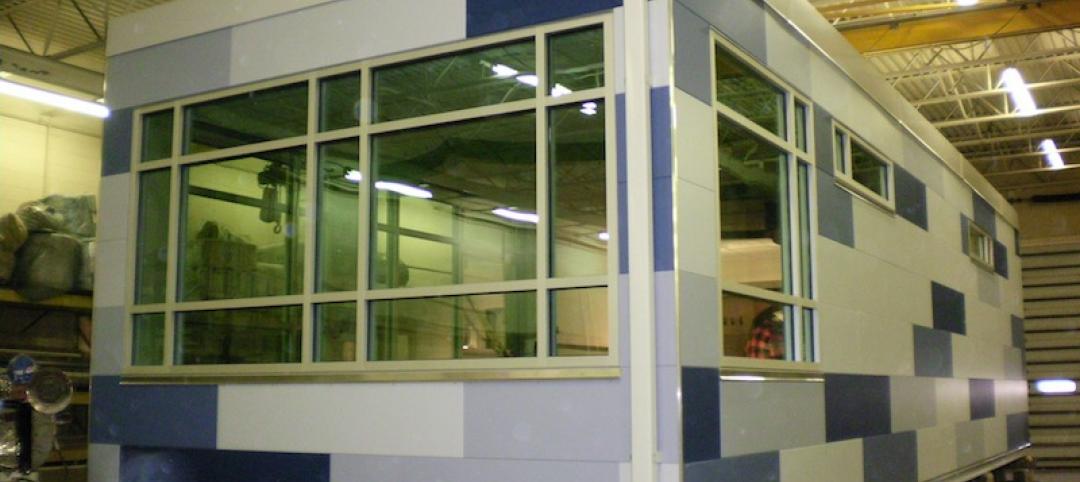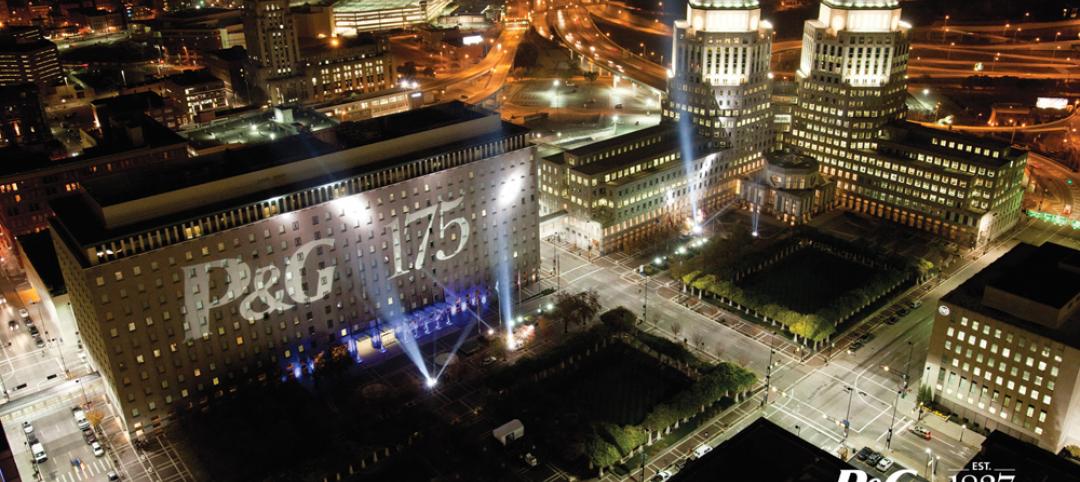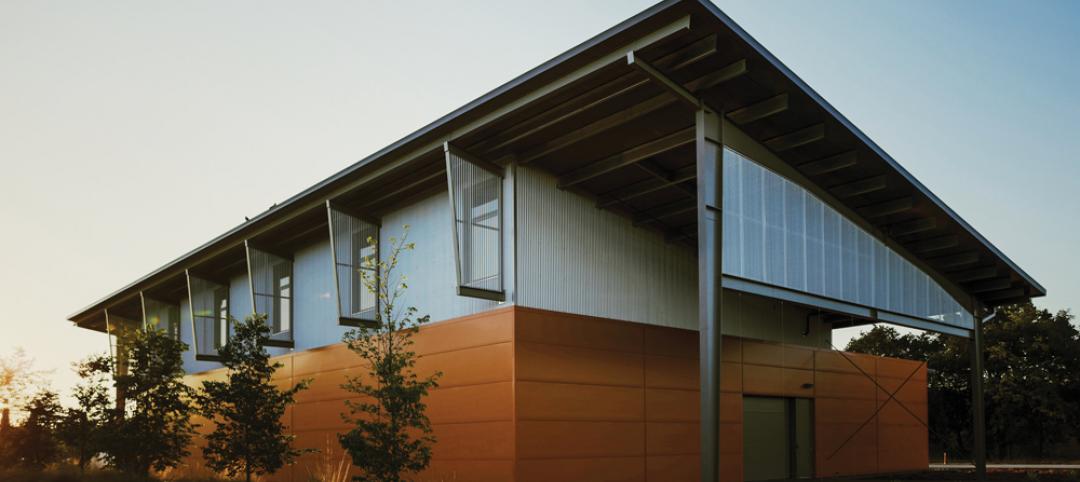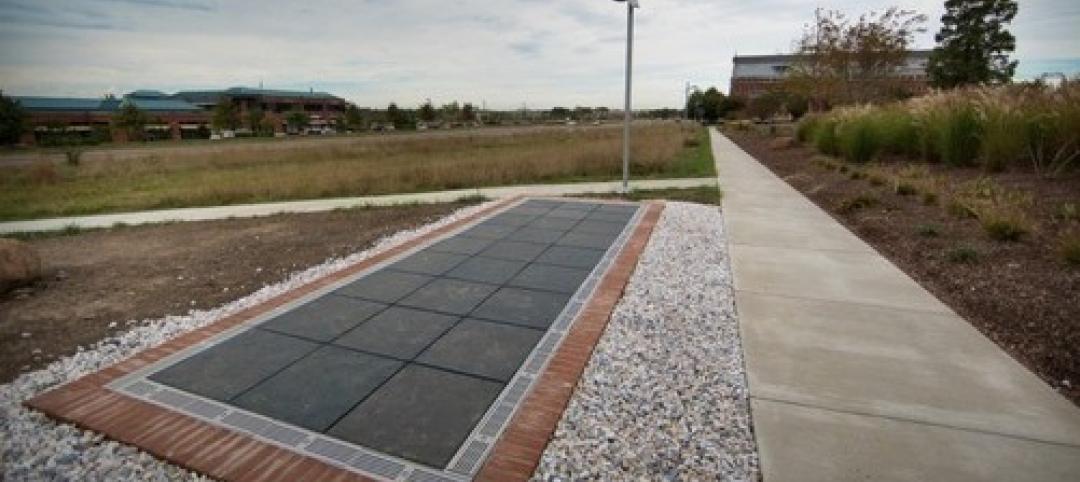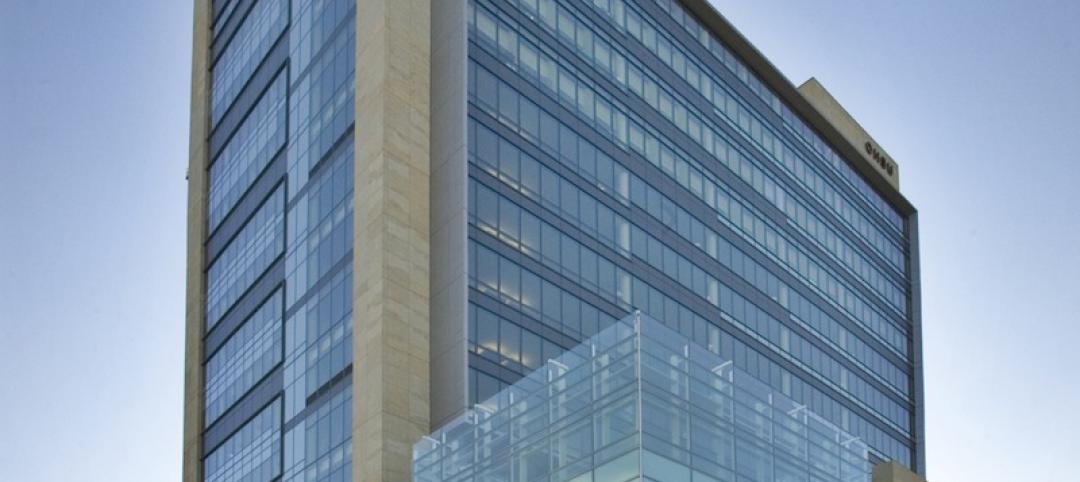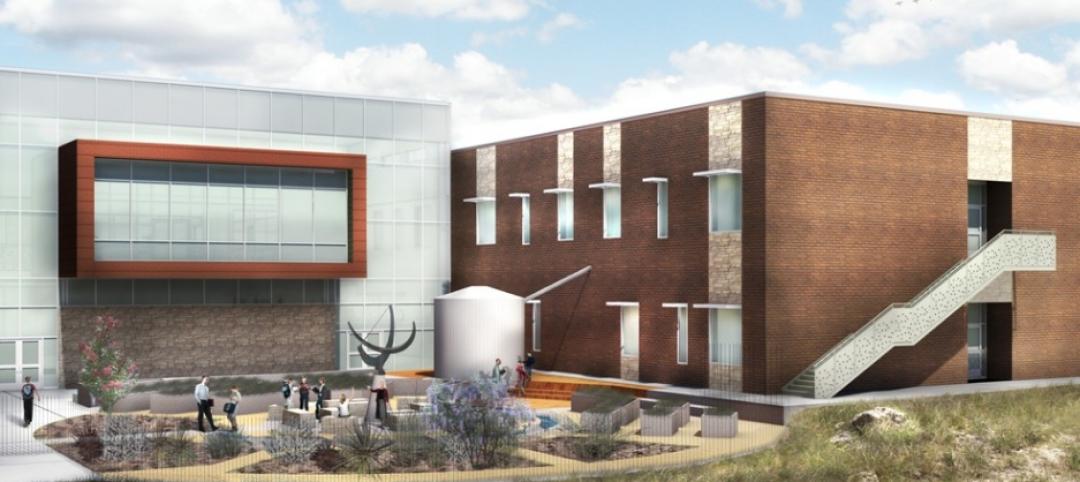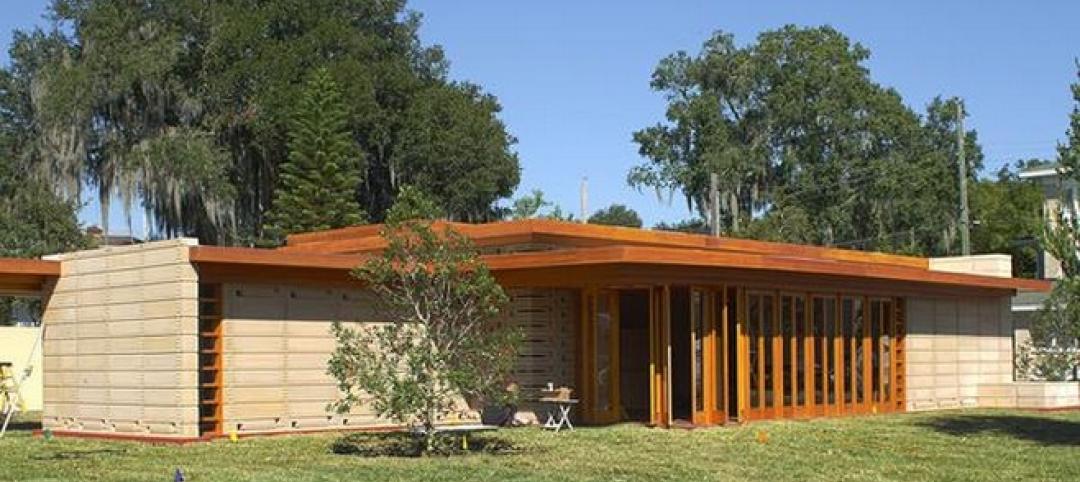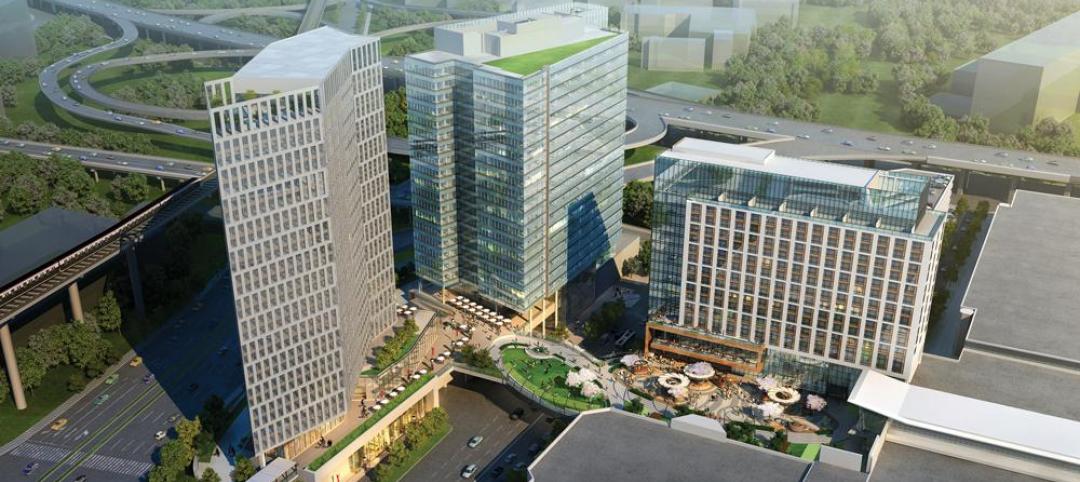 |
| Lincoln Center’s walkable green roof is scheduled to debut next spring. The roof, in the form of a hyperbolic paraboloid, will reach a full height of 11 feet from the plaza level and 23 feet from the sidewalk level; it will extend down to the plaza on the south end, providing access for pedestrians. The cross section below depicts the composition of the green roof system. |
 |
27. Next-Generation Green Roofs Sprout up in New York
New York is not particularly known for its green roofs, but two recent projects may put the Big Apple on the map.
In spring 2010, the Lincoln Center for the Performing Arts will debut one of the nation's first fully walkable green roofs. Located across from the Juilliard School in Lincoln Center's North Plaza, Illumination Lawn will consist of a glass-walled restaurant topped with a 10,000-sf, sloped vegetated roof that will double as a campus lawn for students and the public.
The sloped green roof will add some much-needed softness to the hardscape that dominates Lincoln Center. "It will be a dynamic, engaging kind of space that people hopefully will want to run up on, play Frisbee, or relax," says Heidi Blau, AIA, LEED, partner with FXFOWLE Architects, which is collaborating with Diller Scofidio + Renfro on the Lincoln Center redevelopment.
To support the weight and handle the wear and tear from constant foot traffic, the design team specified a beefed-up version of a typical green roof system. A six-inch-thick composite poured-concrete/metal-deck structural slab rated for 100-pound live loads will support the 14-inch-thick vegetated roof. The slab will be supported on nine steel columns with five girders and 45 beams situated to create the saddle-like "hypar" roof shape. More on Illumination Lawn.
 |
| High-end condos at the 101 Warren St. mixed-use development in New York overlook a rooftop urban forest, complete with 101 pine trees. |
Four miles downtown, in Manhattan's Tribeca neighborhood, a new 950,000-sf mixed-use condo tower designed by Skidmore, Owings and Merrill features what can only be described as a miniature urban forest atop the building's five-story podium. SOM teamed with local landscape architect Thomas Balsley Associates to develop the intensive green roof, which is composed of 101 Austrian pines—some reaching 35 feet in height—planted in a soil bed up to 42 inches deep.
The entire green roof system—which includes a 12- to 16-inch-thick concrete slab topped with a 2 mm waterproof membrane, a root barrier, four inches of rigid insulation, a three-inch-thick drainage panel, geotextile fabric, planting soil, and three inches of mulch—extends six feet deep in certain areas—a depth that has been proven to be sufficient in urban settings and broad planting areas, says Thomas Balsley. He estimates that the trees will eventually reach 50 feet in height.
All residents of the 31-story 101 Warren St. condo tower have access to the rooftop pine forest, and many ultra-lux units overlook the trees. The building's developer, Edward Minskoff, was willing to take on the extra cost of the urban forest because of the unique selling point it offered to prospective condo buyers. It also gave tenants some much-needed green space.
"The notion of a garden in the sky is very appropriate to the urban condition in New York, where the ground plane is precious and, therefore, the opportunities for semi-public space is explored in the third dimension," says Mustafa K. Abadan, FAIA, SOM partner in charge on the project.28. New LEED Retail Programs Speed up Certification
The U.S. Green Building Council's stated goal of reaching 100,000 LEED-certified buildings by 2010 will require thousands of new commercial buildings certified in the next six months. The building type that goes up fastest in the largest numbers is retail commercial buildings. Retail buildings have been LEED registered as prototypes since 2005, but LEED for Retail Commercial Interiors and LEED for Retail New Construction, now open for member ballot, would allow much more flexible certification.
The USGBC is also publishing a LEED for Retail Best Practices manual, to illustrate the strategies used by companies in the LEED for Retail pilot. Any green feature that isn't repeatable for a large number of stores is meaningless in retail, so best practices are even more important than in other building types. Some of the companies participating include Office Depot (LEED Silver in its Austin, Texas, store with six other similar stores), McDonald's (several LEED-certified restaurants), and Chipotle (the world's first LEED Platinum, in Gurnee, Ill.). |
| When the green light is on (circled above), building occupants know it’s okay to open the windows because outdoor air will moderate the building’s mechanical system performance. |
29. Notification System gives Teachers the Green Light to Open the Windows
One of the biggest complaints among K-12 school facility managers is the conflict that arises when teachers and students open the windows during not-so-ideal climate conditions. Introducing outside air into a conditioned building can decrease the mechanical system's efficiency if the outdoor climate conditions increase heating or cooling demands already being made on the mechanical system.
Since most K-12 school districts don't have the budget for high-end automated climate controls, communication and education are often the only tools facility managers have to prevent occupants from opening the windows during less-than-optimal weather conditions.
To help some of its K-12 school clients minimize energy costs, NAC¦Architecture has implemented a simple, inexpensive notification system made up of red and green lights located in the corridors. When the green lights are on, the windows can be opened to help cool the classroom spaces. When the red lights are on, all windows should remain shut, as outdoor air will inhibit the mechanical system's ability to properly condition the building.
"This system is an economical approach to the age-old quandary regarding operable windows," says Dana L. Harbaugh, AIA, LEED, principal architect with NAC¦Architecture, who developed the system. "It asks building users to facilitate environmental stewardship on a daily basis, raising awareness of their impact on energy usage."
Related Stories
| Nov 13, 2013
Installed capacity of geothermal heat pumps to grow by 150% by 2020, says study
The worldwide installed capacity of GHP systems will reach 127.4 gigawatts-thermal over the next seven years, growth of nearly 150%, according to a recent report from Navigant Research.
| Nov 11, 2013
The story behind 'Pedia-Pod,' BD+C's modular pediatric patient unit at Greenbuild
In the November issue of BD+C, you'll see our report on "Pedia-Pod," the modular pediatric patient unit we've helped design, outfit, and build at Greenbuild. Here's how it was developed.
| Nov 8, 2013
Can Big Data help building owners slash op-ex budgets?
Real estate services giant Jones Lang LaSalle set out to answer these questions when it partnered with Pacific Controls to develop IntelliCommand, a 24/7 real-time remote monitoring and control service for its commercial real estate owner clients.
| Nov 8, 2013
S+T buildings embrace 'no excuses' approach to green labs
Some science-design experts once believed high levels of sustainability would be possible only for low-intensity labs in temperate zones. But recent projects prove otherwise.
| Nov 8, 2013
Walkable solar pavement debuts at George Washington University
George Washington University worked with supplier Onyx Solar to design and install 100 sf of walkable solar pavement at its Virginia Science and Technology Campus in Ashburn, Va.
| Nov 6, 2013
Energy-efficiency measures paying off for commercial building owners, says BOMA study
The commercial real estate industry’s ongoing focus on energy efficiency has resulted in a downward trend in total operating expenses (3.9 percent drop, on average), according to BOMA's Experience Exchange Report.
| Nov 5, 2013
Net-zero movement gaining traction in U.S. schools market
As more net-zero energy schools come online, school officials are asking: Is NZE a more logical approach for school districts than holistic green buildings?
| Oct 31, 2013
74 years later, Frank Lloyd Wright structure built at Florida Southern College
The Lakeland, Fla., college adds to its collection of FLW buildings with the completion of the Usonian house, designed by the famed architect in 1939, but never built—until now.
| Oct 30, 2013
15 stellar historic preservation, adaptive reuse, and renovation projects
The winners of the 2013 Reconstruction Awards showcase the best work of distinguished Building Teams, encompassing historic preservation, adaptive reuse, and renovations and additions.
| Oct 30, 2013
11 hot BIM/VDC topics for 2013
If you like to geek out on building information modeling and virtual design and construction, you should enjoy this overview of the top BIM/VDC topics.


